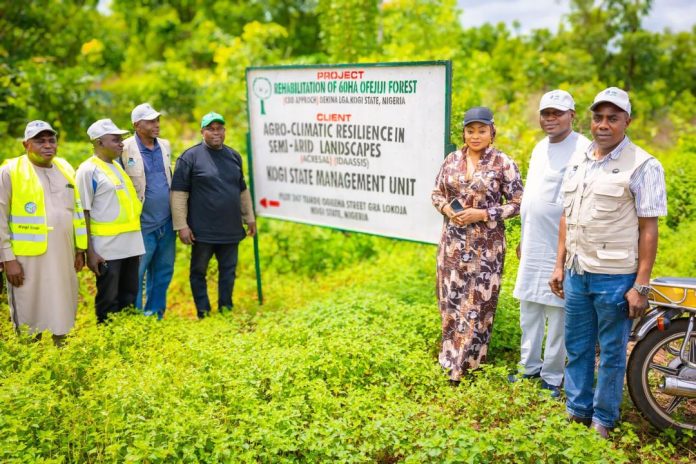The ongoing implementation of the Agro-Climatic Resilience in Semi-Arid Landscapes (ACReSAL) Project in Kogi State has recorded major gains in Okene, Ankpa, and Kabba, drawing commendation from state officials and project stakeholders during a recent inspection tour.
The 3-day monitoring and evaluation visit, led by the Commissioner for Environment and Ecological Management, Engr. Oluwasegun Joseph, covered key intervention sites across the three local government areas.
The visit aimed to assess the quality of work and ensure alignment with the project’s objectives of land restoration, climate resilience, and improved livelihoods.
Engr. Joseph expressed satisfaction with the visible progress across sites, particularly in the areas of gully erosion control, agroforestry, and water conservation infrastructure.
He futther praised the project teams for their commitment to standards and community engagement.
“What we have seen in Okene, Ankpa, and Kabba reflects dedication, technical competence, and a clear focus on impact. These gains are a strong indication that the ACReSAL Project is delivering results,” he said.
Also speaking, the Commissioner for Water Resources and Co-Chairman of the ACReSAL Steering Committee, Engr. Farouk Yahaya, noted that the pace of execution and quality of work have exceeded expectations.
He noted that the progress made underscores the importance of sustained monitoring to ensure long-term success and community ownership.
Project Coordinator of Kogi ACReSAL, Barr. Ladi Ahmed Jatto, used the opportunity to thank Governor Ahmed Usman Ododo for his constant support, describing him as a driving force behind the project’s success.
She also acknowledged the role of the World Bank and the ACReSAL national team in providing strategic guidance and funding.
According to her, “The ACReSAL Project is focused on land restoration, livelihood support, and boosting food security in the face of climate change. The progress recorded in Okene, Ankpa, and Kabba clearly shows that we are on the right path”, she said.
The inspection team visited various intervention points including gully erosion control sites, agroforestry plantations, water harvesting structures, and Community Revolving Fund (CRF) projects, all aimed at building resilience and promoting sustainable land use practices.




